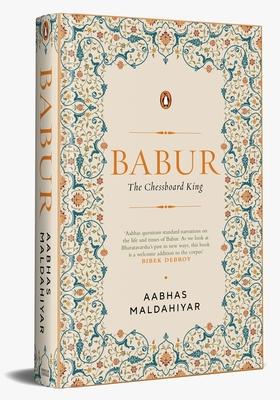Babur, the visionary founder of Timurid Empire in Hindustan, had a fair share of early struggle following his father's tragic demise in AD 1494. Then on, Babur embarked on an unyielding pursuit of power amid treacherous political landscapes, the narrative unveils his moniker, ' the chessboard king, ' portraying his adept navigation through political intricacies and adversities.
From his ascent to rulership in Ferghana amidst familial threats to fleeting victories and losses in Samarkand, the book paints a poignant picture of Babur's journey. It portrays his retreat to tribal lands after relinquishing hopes of reclaiming Ferghana, eventually establishing a mountainous kingdom in Kabul, a pivotal milestone preceding his ambition to expand into Hindustan. Recounting his initial endeavour to penetrate Hindustan in AD 1505, his alliances, and subsequent setbacks after Sultan Husayn Mirza Bayqarah's demise, leaving him as the sole Timurid prince in power, the book opens a window to Babur's failed second attempt to enter Hindustan, encapsulating the initial thirteen to fourteen tumultuous years of his reign, marked by exile, fleeting victories, and delicate alliances.
Gripping, anecdotal and deeply researched Babur: The Chessboard King delves into Hindustan's economic landscape during Timurid rule and portrays Babur as a multifaceted ruler, challenging the typical depiction of an infallible conqueror and a good human being. Meticulously sourced from the Persian manuscript of the Baburnama and other primary sources, this book represents a milestone in Babur's biographical genre, essential for comprehending the ambitions of this enigmatic king.

Babur, the visionary founder of Timurid Empire in Hindustan, had a fair share of early struggle following his father's tragic demise in AD 1494. Then on, Babur embarked on an unyielding pursuit of power amid treacherous political landscapes, the narrative unveils his moniker, ' the chessboard king, ' portraying his adept navigation through political intricacies and adversities.
From his ascent to rulership in Ferghana amidst familial threats to fleeting victories and losses in Samarkand, the book paints a poignant picture of Babur's journey. It portrays his retreat to tribal lands after relinquishing hopes of reclaiming Ferghana, eventually establishing a mountainous kingdom in Kabul, a pivotal milestone preceding his ambition to expand into Hindustan. Recounting his initial endeavour to penetrate Hindustan in AD 1505, his alliances, and subsequent setbacks after Sultan Husayn Mirza Bayqarah's demise, leaving him as the sole Timurid prince in power, the book opens a window to Babur's failed second attempt to enter Hindustan, encapsulating the initial thirteen to fourteen tumultuous years of his reign, marked by exile, fleeting victories, and delicate alliances.
Gripping, anecdotal and deeply researched Babur: The Chessboard King delves into Hindustan's economic landscape during Timurid rule and portrays Babur as a multifaceted ruler, challenging the typical depiction of an infallible conqueror and a good human being. Meticulously sourced from the Persian manuscript of the Baburnama and other primary sources, this book represents a milestone in Babur's biographical genre, essential for comprehending the ambitions of this enigmatic king.